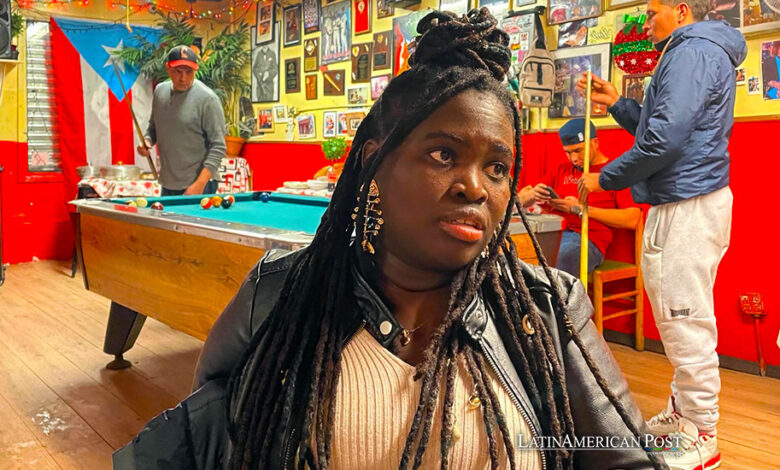Afro-Cuban Singer Daymé Arocena Breaks Barriers in Latin Pop with New Album ‘Alkemi’

Cuban singer Daymé Arocena is breaking barriers in Latin pop with her new album ‘Alkemi,’ which fuses pop sounds with Afro-Cuban rhythms to tell a story of female empowerment and personal transformation.
Breaking Boundaries Through “Alkemi”
Celebrated Cuban artist Daymé Arocena boldly stakes her claim in the pop landscape with her latest album, “Alkemi,” a mesmerizing blend of genre-defying sounds interwoven with Afro-Cuban rhythms, echoing a tale of female empowerment and personal transformation that transcends conventional beauty standards.
At 32, Arocena ventures into uncharted territory within the pop genre, where she’s rarely found representation: “The Latina pop artists I grew up with, like Selena, Christina Aguilera, or Shakira, didn’t look like me. It would be wonderful to see more Afro-descendant women doing what they do,” shares the Havana-born artist in an interview with EFE.
From childhood, Arocena has borne the weight of being a black, plus-sized woman, feeling a disparity in visibility between Anglo-Saxon and Latina women in the pop world.
The project’s title, “Alkemi,” derived from the Yoruba language of West Africa, signifies ‘alchemy,’ a philosophical discipline centered on human transformation. Initially encompassing the Caribbean’s rhythmic, musical, and cultural diversity, it swiftly assumed a deeply personal significance for the Cuban songstress.
“Alchemy refers to processes of transformation, mixing, and exploration to reach a result. During recording, I began experiencing changes within myself, as I grappled with childhood traumas that I healed through the album,” she expresses.
Guided by producer Eduardo José Cabra (known artistically as Visitante, half of the Puerto Rican group Calle 13), Arocena carves her niche in pop without forsaking her Caribbean roots.
Afro-Cuban Heritage
Arocena pays homage to Afro-Cuban music, rooted in the experiences of enslaved Africans brought to the island: “Imagine arriving in a place where you can’t retain your name, language, or culture, and where you’re nothing. Would you still feel like singing? Well, they did. Africans healed themselves with music,” she asserts.
In Havana, the artist was immersed in Afro-Cuban rhythms, primarily influenced by her family: “I was born in a house with two rooms and a bathroom, where there were 14 of us. My grandmother sometimes had to feed us with five eggs, yet despite the circumstances, singing and dancing happened every day.”
In 2019, Arocena departed Cuba for Canada due to political persecution affecting her husband, a freelance journalist, fearing it might extend to her.
She recounts challenging the Cuban government’s restrictions on independent music during an assembly with the then Minister of Culture at 27. “I don’t understand why we have a system in Cuba where musicians can’t perform without government authorization for every concert. The minister responded that my ideas were pro-capitalist,” she recalls.
Recording “Alkemi” in Puerto Rico, Arocena fell “head over heels” for the island and relocated there with her husband: “I feel at home there,” she asserts.
Female Empowerment
Reflecting the principles of alchemy, the album is a melange of songs exploring toxic relationships and lighter themes delving into female sensuality, exemplified by “A fuego lento,” a collaboration with Dominican artist Vicente García.
This empowerment, inherent to Arocena’s persona and recent music, is palpable in “Por Ti,” where she dances boldly before the camera, a feat she previously shied away from due to constant scrutiny of her appearance.
Also read: Cuban-American Singer Pitbull Blends Genres in a Dazzling New EP
“There’s a lot of violence against women; we’re constantly judged by how we look and our bodies,” she remarks.
Arocena embarks on her U.S. tour, commencing in New York with a concert at Sultan Room in Bushwick, Brooklyn, followed by performances in Texas, Massachusetts, and Puerto Rico.


